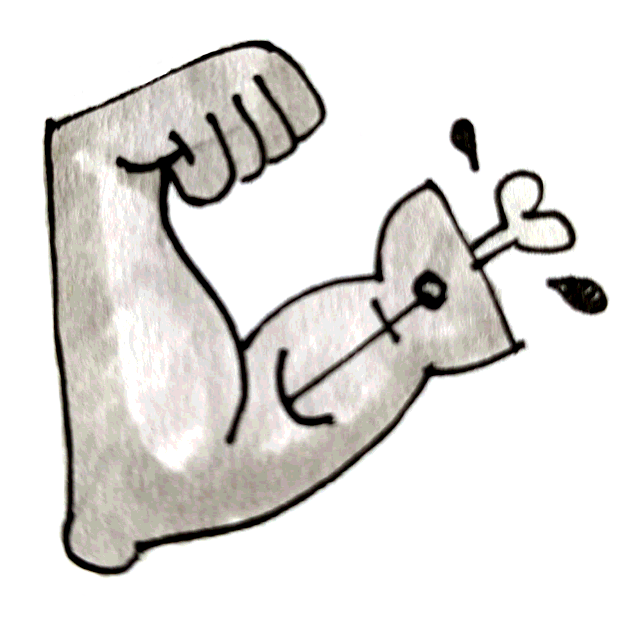On holiday in Portugal, we walked into town for a meal. There were tourists everywhere and lots of restaurants. We hovered around, looking at menus and discussing prices. The proprietors also hovered, waiting for the chance to draw us in.
Soon, we found a place we liked and commenced the hand gestures and broken English of securing a table, and as we did this, my son, ever affectionate, sidled up next to me and placed his hand around my waist. I was distracted with getting a table but reciprocated – my hand sliding around his back – as I decided which of the offered tables to pick.
People on nearby tables were giggling at something. There was noise all around, the tables were on the street, and people moved past. My wife turned to me to confirm the choice of tables, looked shocked and smiled (maybe a little nervously). I turned and saw that instead of my son, I had my arm around a clown.
My shock and reaction drew more laughter from the crowd, and now I knew what had been causing their giggles before. I looked around at them as if to say, "Oh, I get it", feebly trying to show I was a good sport. Then, I sheepishly took my seat.
The clown wore tight black clothes; his face was painted white, and his lips red. He danced away and performed some other stunts, approaching people in the street and barking loudly at them from the side, getting them to leap and giggle with fright, or moving quietly behind them and then mocking their walk or their appearance for the benefit of the nearby diners.
We watched him for a bit, and I realised how clear it was that what he was doing was a benign violation. He was clearly violating all sorts of "normal" behaviour in all sorts of ways. Yet, whilst occasionally this veered towards discomfort, he never got there; he was always just on the side of safety.
Well, I say that. I think there was a certain amount of tension in the air because he was being so unpredictable, but if we really thought about it I don't think we felt threatened. As I discovered when he pulled his trick on me, the worst that would happen was losing a bit of face, and as long as you chuckled along, that would be minimal.
Still, he was unpredictable.
What struck me as well was how easy it was for him to violate our norms in even quite mild kinds of ways. That was because when you looked at the hundreds of tourists milling through this seaside town, it was incredible how conventionally they behaved. You'd expect a throng of people on holiday, maybe a little early-evening-tipsy, would be a mass of difference, but within certain bounds, everyone was doing almost exactly the same thing. Walking along at vaguely the same speed, looking at restaurants, chatting, pausing to read menus, and sometimes sitting down. The only people who were in any way diverging from this behaviour were children, but even they fitted neatly into a box of "typical childish behaviour".
What no one was doing was creeping up behind a stranger and barking loudly or trotting along behind them, mimicking their movements.
It is interesting that it takes a clown in those situations to show us how narrow our range of behaviour actually is.
He says, "There are a million things you could be doing, yet you're choosing to do almost exactly what everyone else is doing. And look how I stand out when I do something even slightly different. Look at how uncomfortable it makes you and how you laugh when I diffuse the situation by actually being benign."
<- Back
